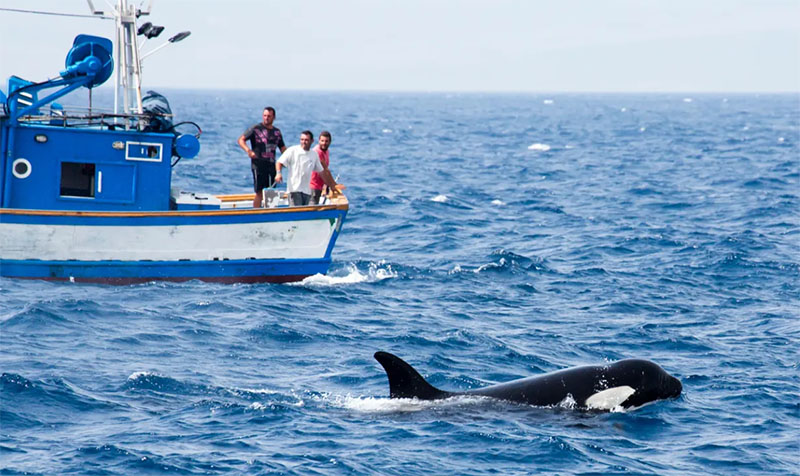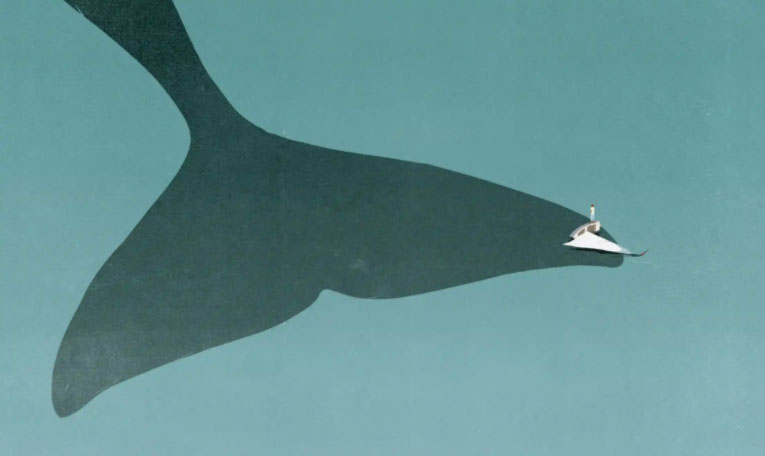||| from the Guardian |||

Scientists have been left baffled by incidents of orcas ramming sailing boats along the Spanish and Portuguese coasts.
In the last two months, from southern to northern Spain, sailors have sent distress calls after worrying encounters. Two boats lost part of their rudders, at least one crew member suffered bruising from the impact of the ramming, and several boats sustained serious damage.
The latest incident occurred on Friday afternoon just off A Coruña, on the northern coast of Spain. Halcyon Yachts was taking a 36ft boat to the UK when an orca rammed its stern at least 15 times, according to Pete Green, the company’s managing director. The boat lost steering and was towed into port to assess damage.
Around the same time there were radio warnings of orca sightings 70 miles south, at Vigo, near the site of at least two recent collisions. On 30 August, a French-flagged vessel radioed the coastguard to say it was “under attack” from killer whales. Later that day, a Spanish naval yacht, Mirfak, lost part of its rudder after an encounter with orcas under the stern.
Highly intelligent social mammals, orcas are the largest of the dolphin family. Researchers who study a small population in the Strait of Gibraltar say they are curious and it is normal for them to follow a boat closely, even to interact with the rudder, but never with the force suggested here.
The Spanish maritime authorities warned vessels to “keep a distance”. But reports from sailors around the strait throughout July and August suggest this may be difficult – at least one pod appears to be pursuing boats in behaviour that scientists agree is “highly unusual” and “concerning”. It is too early to understand what is going on, but it might indicate stress in a population that is endangered.
On 29 July, off Cape Trafalgar, Victoria Morris was crewing a 46ft delivery boat that was surrounded by nine orcas. The cetaceans rammed the hull for over an hour, spinning the boat 180 degrees, disabling the engine and breaking the rudder, as they communicated with loud whistling.
It felt, she said, “totally orchestrated”. Earlier that week, another boat in the area reported a 50-minute encounter; the skipper said the force of the ramming “nearly dislocated the helmsman’s shoulder”.
**If you are reading theOrcasonian for free, thank your fellow islanders. If you would like to support theOrcasonian CLICK HERE to set your modestly-priced, voluntary subscription. Otherwise, no worries; we’re happy to share with you.**









In 1820, the US whaler out of Nantucket was rammed and sunk by a sperm whale. Look it up. Nature seems to have its own way of saying, Enough is enough.” The message comes in many forms. Look outside.
Please correct my comment. It should read “The US whaler “Essex” out of Nantucket … ”
Thanks!
It sounds like the Orcas are extremely stressed. Definitely unusual behavior. The sounds of motors underwater is very, very loud to them. I guess they needed to get the humans’ attention to their plight. Unfortunately, we humans, don’t often think in terms of non-humans as having feelings and stress, similar to what we experience. This seems like Nature reminding us to be True Human Beings again.